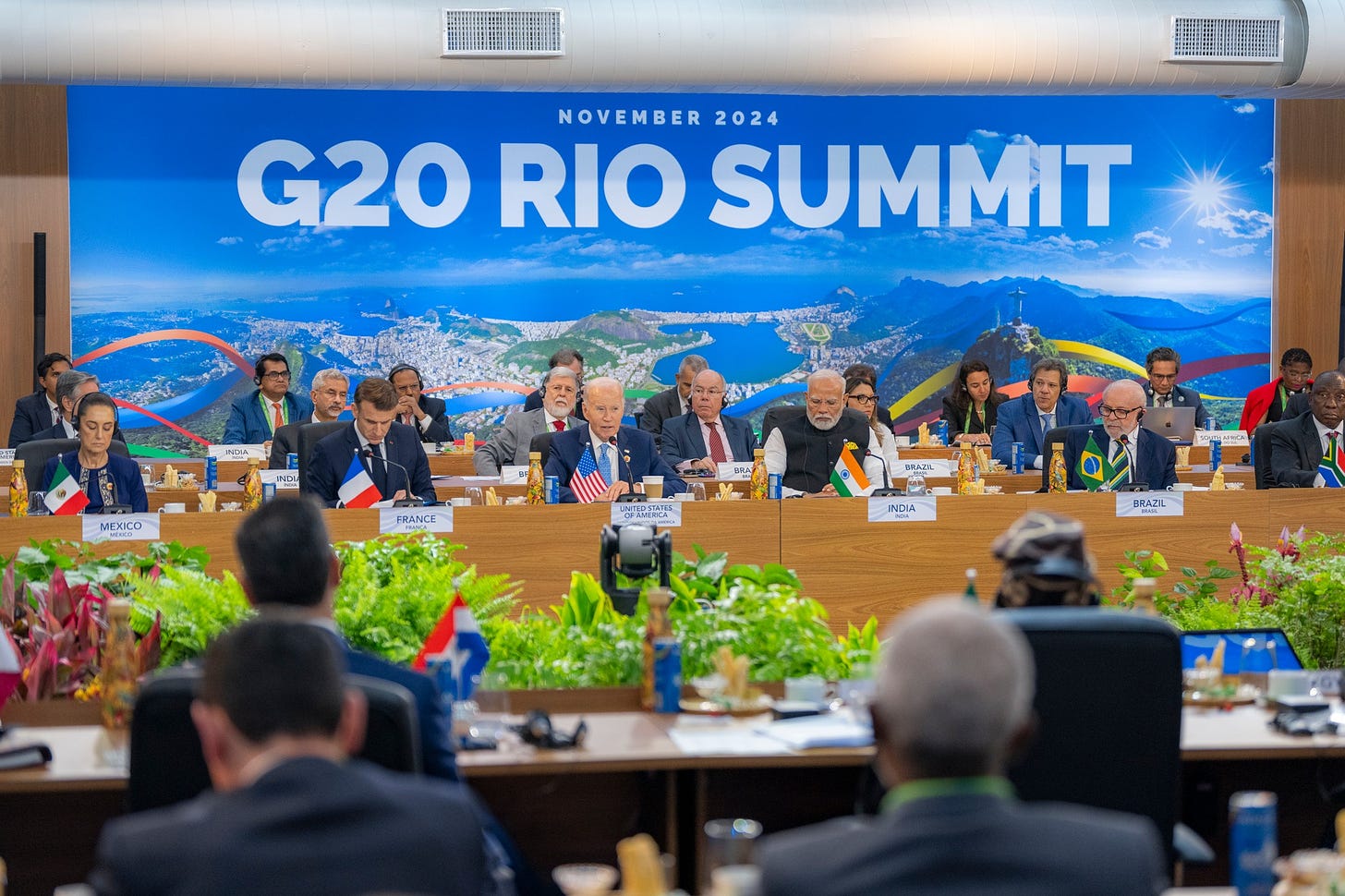President Biden has called on Congress to approve emergency funding to address the recovery needs of communities impacted by Hurricanes Helene, Milton, and other recent natural disasters. He highlighted the urgent need to replenish the Small Business Administration’s (SBA) Disaster Loan Program, which has exhausted its funds, leaving individuals and businesses without critical support for rebuilding. FEMA’s Disaster Relief Fund (DRF) also requires immediate reinforcement to sustain recovery efforts nationwide. Biden also stressed the importance of funding for farmers, rural communities, and housing recovery through agencies like the Department of Agriculture and HUD, alongside resources to rebuild power grids, roads, and bridges. He underscored the need to address shortages of critical medical supplies, ensure safe drinking water, and support the recovery of essential infrastructure.
Biden urged Congress to cancel the National Flood Insurance Program’s (NFIP) debt to ensure flood survivors continue to receive assistance. He also requested an extension of FEMA deadlines for fire victims in New Mexico to allow them more time to access relief. Drawing on historical bipartisan support for disaster relief, the President emphasized the critical role of federal resources in helping communities recover and rebuild. He called for immediate action to provide the necessary aid, pledging that his administration will remain committed to supporting affected areas throughout the recovery process.
President Biden met with Canadian Prime Minister Justin Trudeau on the sidelines of the G20 Leaders’ Summit in Rio de Janeiro, Brazil. During the meeting, President Biden expressed gratitude for Canada’s strong partnership in addressing key global challenges, including job creation, climate change, migration, NATO alliance strengthening, and humanitarian efforts in Haiti and beyond. The discussion emphasized the shared commitment to Arctic and continental defense, with Biden underscoring the importance of Canadian defense investments and the modernization of the Columbia River Treaty. Both leaders agreed on the critical role of democracy and the rule of law in ensuring North America's prosperity and success.
The President also met with Mexican President Claudia Sheinbaum during the G20 Summit. He congratulated her on her recent election and reaffirmed the United States’ dedication to fostering a prosperous North America with well-paying jobs. The two leaders discussed continued collaboration on migration, security, combating transnational criminal violence, and economic issues, building on the strong bilateral partnership between the U.S. and Mexico.
Deputy National Security Advisor Jon Finer outlined President Biden's key engagements and objectives during the G20 Summit in Rio de Janeiro, emphasizing a broad agenda focused on global challenges and international collaboration. President Biden's schedule includes bilateral meetings, notably with Brazilian President Lula, where they will discuss shared priorities such as addressing hunger and poverty, clean energy initiatives, and launching a bilateral Clean Energy Transition Partnership to strengthen Brazil’s economic and environmental resilience. The President will also participate in multilateral discussions, pressing the G20 to advance critical issues like climate change, pandemic preparedness, and sustainable development.
A primary focus for President Biden at the summit is ensuring developing countries have the resources to invest in their futures. He will advocate for enhanced lending capacity at international financial institutions, including a $36 billion funding request for the World Bank. To address pandemic preparedness, Biden plans to announce a $667 million U.S. contribution to the Pandemic Fund to meet its $2 billion replenishment goal. On climate, the President will call for stronger commitments from G20 nations to meet Paris Agreement targets and advance global clean energy transitions.
On the ongoing conflict in Ukraine, Finer reaffirmed the U.S. commitment to strengthening Ukraine’s defense capabilities amidst escalating Russian aggression, including attacks on Ukrainian infrastructure and the deployment of foreign troops on its territory. While specific decisions regarding weaponry were not disclosed, Finer emphasized that U.S. support will continue to evolve to ensure Ukraine's sovereignty and security. He reiterated that any decisions about negotiations with Russia remain solely up to Ukraine.
Finer also addressed the transition of power in the U.S., emphasizing that the Biden administration’s efforts have strengthened U.S. alliances and global commitments. He expressed confidence that these relationships, based on mutual interests, will endure beyond the current administration. Finally, he highlighted the administration’s push for international debt relief to support sustainable development, calling global partners to prioritize long-term prosperity over exploitative practices. Through these engagements, the president aims to solidify progress on critical global challenges and enhance international cooperation.
NOMINATIONS SENT TO THE SENATE:
Benjamin J. Cheeks, of California, to be United States District Judge for the Southern District of California, vice Gonzalo P. Curiel, retired.
Serena Raquel Murillo, of California, to be United States District Judge for the Central District of California, vice Cormac J. Carney, retired.
President Biden addressed the G20 Summit in Rio de Janeiro, emphasizing collective action's importance in tackling global challenges. He highlighted the need for large-scale investment to achieve Sustainable Development Goals (SDGs), mainly through bolstering multilateral development banks. Over three years, the United States pledged $4 billion to the World Bank’s International Development Association, urging other nations to increase their contributions. Additionally, he praised U.S. efforts to mobilize $60 billion through the Partnership for Global Infrastructure and Investment, with initiatives like the Lobito Corridor in Africa, which aims to enhance food security.
Biden introduced the Nairobi-Washington Vision on debt relief, advocating for increased resources, private-sector financing, and a commitment to flow funds into countries facing crises. He called on all creditors to participate in easing the debt burdens of vulnerable nations. Addressing global conflicts, he reiterated U.S. support for Ukraine’s sovereignty and blamed Russia’s invasion for exacerbating the global food crisis. On Gaza, Biden emphasized Israel’s right to defend itself while underlining the importance of humanitarian aid and pushing for a ceasefire deal to secure hostages and alleviate Palestinian suffering. Regarding Sudan, he condemned the ongoing violence and famine threatening 8 million people, urging international actors to halt support for the warring factions.
The President concluded his remarks by acknowledging that this was his final G20 Summit. He urged cooperation among member nations to usher in a new era of sustainable development, emphasizing the group’s capacity to transform global assistance efforts from billions to trillions. He expressed optimism about their ability to lay the foundation for a more sustainable and equitable future.
President Biden attends his last G20 summit in Rio de Janeiro





